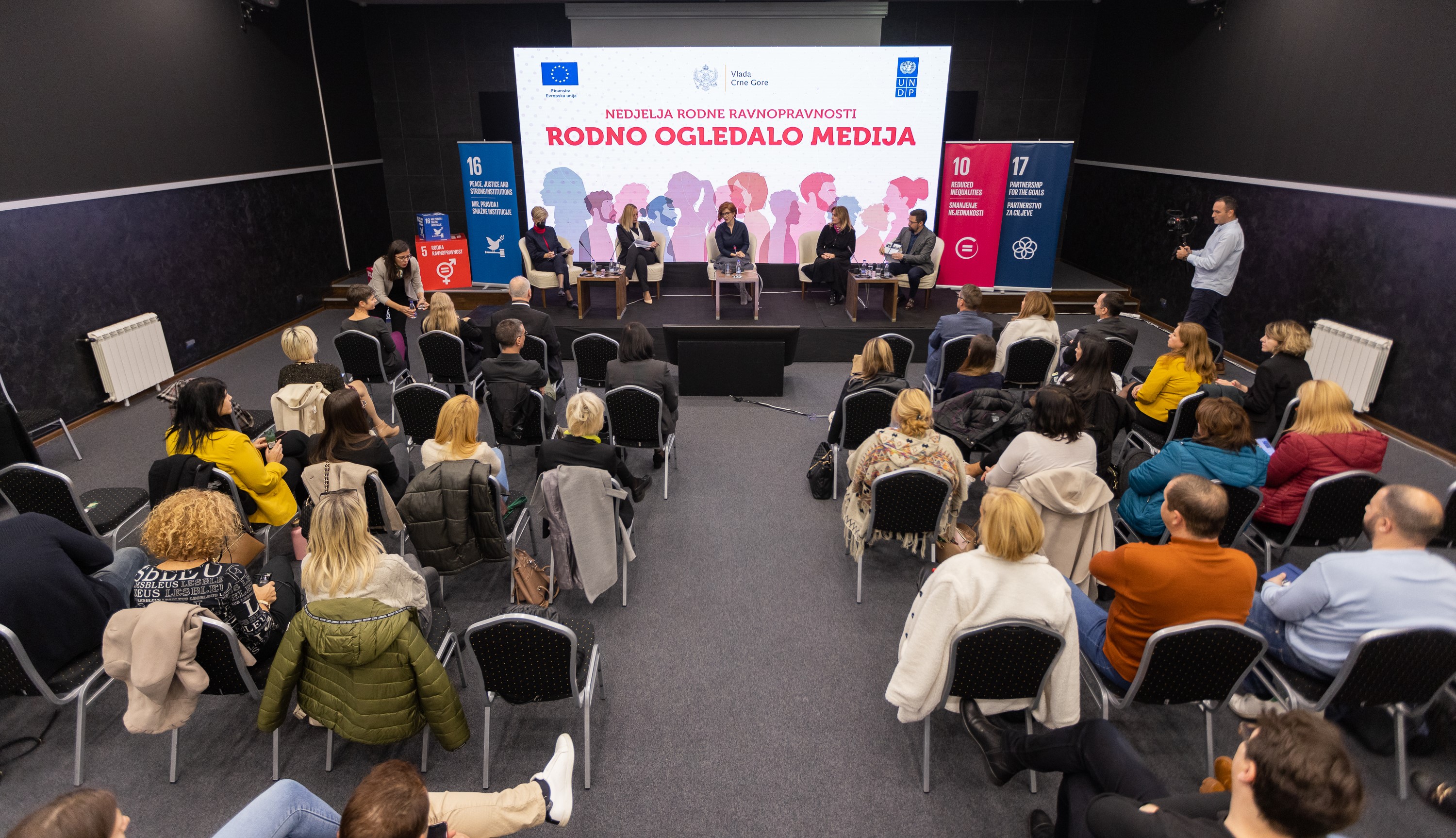Media content indicates the lack of gender equality awareness
November 28, 2022

Podgorica, 28 November 2022 – The media is a mirror of society and one of the key links in the chain of defence of democratic values. However, media content shows that Montenegrin society's awareness of the importance of promoting gender equality as a fundamental human right is not yet sufficiently developed – it was said during the panel "Media through gender lenses", which was held in Budva as the first in a series of events during Gender Equality Week,
Given the important role the media play in informing the public and creating public opinion, the focus of the first day of Gender Equality Week was on the alliance with the media in closing the gender gap and fighting against increasingly widespread hate speech.
About fifty panel participants – media professionals, representatives of professional journalistic associations and representatives of various institutions – discussed the research findings, the status and representation of women in the media, and media content in general.
UNDP Resident Representative for Montenegro, Daniela Gasparikova, said that despite the progress, Montenegro has a long way to go towards achieving gender equality, which will require the joint action of all – individuals, institutions and the civil sector, especially considering increasingly frequent outbursts of hate speech with a misogynistic and sexist tone.
"Strengthening the responsibility of institutions and a true commitment to gender equality is key for this process, along with the creation of an inclusive and effective legal and strategic framework. We need a synergy of different actors, in order to challenge social norms and deconstruct stereotypes and entrenched patriarchal patterns. This is directly related to the media, because they shape narratives, influence the perception and attitudes of citizens and represent a powerful ally in the fight for gender equality and the promotion of human rights, ,Gasparikova said.

Dusanka Pejovic, journalist and the author of the research titled "Media in Montenegro through gender lenses", believes that hate speech should be addressed critically. "It is necessary to use concrete examples to draw the attention of the public to the problem, and educate the public about this phenomenon. On the other hand, it is important to continuously educate media professionals, because the media should be promoters of gender equality," she said. Pejovic reminded of research findings that indicate that women make up only a fifth of interlocutors in the media, and that the visibility of women in the media has only increased by half a per cent over the past six years.
Sonja Drobac, the director of TV E, believes that the lack of knowledge, facts and exchange of arguments clearly shows the lack of the concept of gender equality, and leads to hate speech, and sexist and misogynistic messages. "Well-grounded criticism of one's work has never been an issue, but targeting on the basis of sex and gender, such as the recent "critical reviews" of the work of female ambassadors, is always an issue. Also, today we are witnesses to the targeting of feminist groups as extremist ones. We must know that changes have always come and will come thanks to feminism", Drobac concluded.
The moderator of the panel, political scientist Marko Savic, said that for the credibility of the media and media content, it is important to respect the principles of professional reporting, and always keep in mind the protection of human rights and the right to freedom of expression.
The first panel within the Gender Week was organized through two projects - "Communicating Gender Equality", which was implemented by UNDP through partnership with the Ministry of Human and Minority Rights and financial support of the EU Delegation and "Promotion of dialogue and joint actions to combat hate speech", a project financed by UNDP Funding Window for Governance, Peacebuilding, Crisis and Resilience with contributions of Sweden and Luxembourg.
The panel was followed by a three-day training for journalists and other media staff on role of media in promoting gender equality and combating sexist hate speech and misogyny, realized through the project "Promotion of dialogue and joint actions to combat hate speech".

 Locations
Locations

